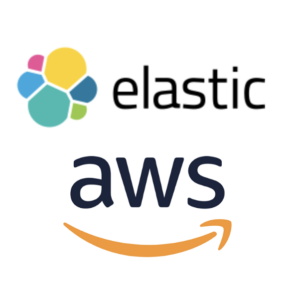
(Yury Zap/Shutterstock)
One of many hallmarks of the massive information period has been widespread use of free and open supply software program. However in current months, firms like Cockroach Labs and Anaconda have pulled again on their commitments to free and open software program, whereas Elastic–one of many distributors that initially pulled again from open 5 years in the past–introduced a return to open supply licensing final week. What does this signify for open supply?
Cockroach Labs raised some eyebrows final month when it introduced the top of its free Core providing. Beginning with the discharge of CockroachDB model 24.3 in November, the corporate will solely supply the enterprise model of its product, the corporate mentioned.
The caveat to the announcement is that each one people, college students, and small companies with lower than $10 million in annual income shall be permitted to run CockroachDB Enterprise totally free, Cockroach CEO Spencer Kimball wrote in a weblog publish.
The change was made to not solely be certain that all CockroachDB clients get entry to the complete breadth of capabilities within the distributed relational database, however that it ensures a “a good trade of worth,” Kimball wrote.![]()
This transfer has been a very long time in coming. Cockroach initially dropped the Apache 2 license again in 2019, and opted as an alternative a extra restrictive “supply out there” BSL license, which permitted customers to run the database however required anybody from providing a business model of CockroachDB to buy a license.
However Cockroach was not the primary open supply vendor to maneuver away from the permissive Apache 2 license. Confluent, the corporate behind Apache Kafka, ditched Apache 2 in December 2018 in favor of a brand new Confluent Neighborhood License. MongoDB introduced its Server Facet Public License (SSPL) in October 2018, and Redis Labs, which introduced a brand new Commons Clause to its open supply license in August of that 12 months. Grafana, a part of the Elastic stack, ditched Apache 2 in favor of the GPL license in April 2021. Lightbend the developer of the Akka platform, which shifted from Apache 2 license to BSL again in September 2022. Streaming information platform supplier Redpanda has additionally adopted the BSL in its quest to upset the Kafka applecart.
Anaconda, which develops a package deal of open supply instruments for information science, can be taking place this highway. Since 2012, the corporate has been doing the onerous work of bundling tons of of open supply Python- and R-based information science instruments and distributing them in a package deal. The Anaconda Distribution accommodates greater than 250 libraries, akin to NumPy, Pandas, SciPy, whereas the Anaconda repository has practically 8,000 libraries.
Open supply is core to Anaconda’s mission, however in early 2020, the Austin, Texas firm introduced a change in its phrases and commenced asking “heavy customers” to pay $15 per consumer to entry the package deal. Later that 12 months, it clarified the phrases, and the result’s business entities with 200 or extra customers should pay. Nonetheless, the corporate has lately brought on some consternation in massive universities and different tutorial establishments with massive Anaconda consumer bases, who’re being requested to pay up for information science software program they as soon as thought of free to make use of.
Like Anaconda, Cockroach Labs determined a financial change was vital to guard its dedication to open supply software program (OSS) in addition to its enterprise.
“Opponents have all the time been legally allowed to supply one other firm’s OSS product as a service,” Cockroach’s Kimball wrote in a 2019 weblog publish that’s been archived. “Now, we’re lastly seeing it happen. We’re witnessing the rise of highly-integrated suppliers benefit from their distinctive place to supply ‘as-a-service’ variations of OSS merchandise, and supply a superior consumer expertise as a consequence of their integrations. We’ve most lately seen it occur with Amazon’s forked model of ElasticSearch…”
Elastic’s journey has been fairly instructive. Following the launch of Amazon Elasticsearch Service by AWS in 2019, Elastic responded by pulling the plug on the Apache 2 license for Elasticsearch and Kibana in January 2021, and changing these licenses with BSL-derived licenses. As then-CEO Shay Bannon defined, the shift to BSL got here with some built-in restrictions and provisions, together with a attainable shift again to a extra permissive license inside 5 years.
That seems to be what occurred final week, when Elastic introduced that Elasticsearch and Kibana are being licensed underneath the GNU Affero Basic Public License v3 (AGPL), which is an Open Supply Initiative (OSI)-approved open supply license.
“We’re delighted to reintroduce an OSI-approved open supply license to Elasticsearch and Kibana,” mentioned Shay Banon, who’s now CTO, mentioned in a September 3 press launch. “Elastic has all the time strongly believed within the ethos of open supply and the readability and transparency that it permits.”
One of many causes for the return to an open supply license is the market confusion brought on by Amazon’s fork has, for essentially the most half, lifted, Banon mentioned.
“The excellent news is that whereas it was painful, it labored. 3 years later, Amazon is totally invested of their fork, the market confusion has been (principally) resolved, and our partnership with AWS is stronger than ever,” Banon wrote in a weblog publish. Elastic was even named AWS’ companion of the 12 months, he added.
The lesson of all of that is that you just transfer away from open supply at your personal peril, mentioned Karthik Ranganathan, the founder and co-CEO of Yugabyte, which makes distributed relational database primarily based on Postgres that competes with CockroachDB.
“Open supply forces competitors and innovation, and brings adoption,” Ranganathan informed Datanami. “Open supply actually provides [customers] optionality….The truth that it’s open supply, there’s nearly a de-risking issue.”
One of many causes that adoption in Postgres has been so nice the previous few years is as a result of it’s open supply, he mentioned. In the event that they don’t like one Postgres service, then can choose up their database and transfer elsewhere, with a minimal of muss and fuss. What which means is that any database that’s constructed atop a Postgres core must be as open as Postgres, or it’s going to lose that power and adoption driver, he mentioned.
“When you’re considering you’re the way forward for Postgres within the cloud, you’ve acquired to be as open as Postgres,” Ranganathan mentioned. “How do you anticipate to do it with out being as open?”
Requested how he would reply if AWS determined to supply its personal model of Yugabyte’s distributed database as a service within the cloud, Ranganathan mentioned he wouldn’t struggle it. In reality, it would even be a very good factor, he mentioned.
“We really feel that sure, that can truly put wind in our sails greater than take it away as a result of it’s going to drive extra folks to the database,” he replied. “Because the creators and the innovators on the database, we predict extra folks will come to us. So it’s simply good for everyone, proper? It’s sort of the way in which open supply ought to work.”
Associated Gadgets:
Cloud Backlash Grows as Open Supply Will get Much less Open
Grafana Ditches Apache 2.0, Switches to AGPL
The Way forward for Databases Is Now